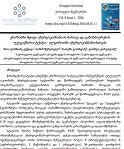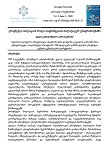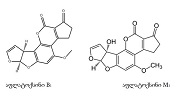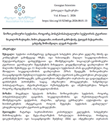Acceptance of change: Exploring factors of employee resistance to organizational change
Downloads
Due to changes in globalization, changes due to advances in technology and other factors, the reality is our organizations are constantly having to adapt. If we continue to approach the transformation of organizations, the way we always have been(stressed) we need to sort out two things: First, why is change so exhausting? And second how do we fix it? Change management becomes an inevitable within organizations’ performance. Successful and unsuccessful change management initiatives have been discussed by various authors and the topic continues to expand. Numerous studies provide an understanding into the nature of change management and identifies its most common drawbacks. The most frequent themes include resistance to change, readiness for change, leadership effectiveness, employee commitment, and the roles and competencies ensuring smooth occurrence of strategic change.The present article focuses on one of these themes: resistance to change. Understanding reasons for resistance may aid managers to reduce conflict and increase collaboration. To meet these challenges, leaders must be qualified enough to overcome resistance to change. This article points out important types of resistance for organizations to address.
Downloads
Gilley, A., Gilley, J. W., & McMillan, H. S. (2009). Organizational change: Motivation, communication,
and leadership effectiveness. Performance Improvement Quarterly, 21(4), 7-94.
Jian, G. (2007). Unpacking unintended consequences in planned organizational change: A process model.
Management Communication Quarterly, 21(5), 5-28.
Brisson-Banks, C. V. (2010). Managing change and transitions: A comparison of different models and their
commonalities. Library Management, 31(4), 241-252
Erwin, D. (2009). Changing organizational performance: Examining the change process. Hospital Topics:
Research and Perspectives on Healthcare, 87(3), 28-40.
Ford, J. D., Ford, L. W., & D’Amelio, A. (2008). Resistance to change: The rest of the story. Academy of
Management Review, 33(2), 362-377.
Kouzes, J.M. and Posner, B.Z. (2002) The Leadership Challenge. 3rd Edition, Jossey-Bass, San Francisco.
Bercovitz, J., & Feldman, M. (2008). Academic entrepreneurs: Organizational change at the individual
level. Organization Science, 19(1), 69-89.
Weiner, B. J. (2009). A theory of organizational readiness for change. Implementation Science, 4, 1-9.
Herold, D. M., Fedor, D. B., Caldwell, S., & Liu, Y. (2008). The effects of transformational and change
leadership on employees’ commitment to a change: A multilevel study. Journal of Applied Psychology,
(2), 346-357.
Mary Coulter,by David A. De Cenzo,by Stephen P. Robbins Fundamentals of Management (10th edition)

This work is licensed under a Creative Commons Attribution-NonCommercial-NoDerivatives 4.0 International License.


























































































































































































































